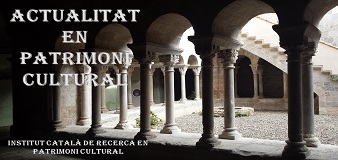
CFP: CMNH Postgraduate Conference 2018. Time, Memory and Conflict: Critical Approaches. University of Brighton, 6th July 2018
Time, Memory and Conflict: Critical Approaches
An interdisciplinary, one-day conference at the University of Brighton, 6th July 2018
9.30-5pm in M2 Boardroom, Grand Parade
http://arts.brighton.ac.uk/re/mnh/centre-events/postgraduate-conferences/time,-memory,-and-conflict-critical-approaches<redir.aspx?REF=ouOOKoOIRNCWiF6S1HNgFEpKQucK3sTeAaH4sgot3lNkNpdaC7HVCAFodHRwOi8vYXJ0cy5icmlnaHRvbi5hYy51ay9yZS9tbmgvY2VudHJlLWV2ZW50cy9wb3N0Z3JhZHVhdGUtY29uZmVyZW5jZXMvdGltZSwtbWVtb3J5LC1hbmQtY29uZmxpY3QtY3JpdGljYWwtYXBwcm9hY2hlcw..>
Organised by the Centre for Memory, Narrative and Histories, University of Brighton
Research on the complex inter–relations between past, present and future in the time after political violence often leads us to question and push the boundaries of established theories and methods. Increasingly, work in this area reflects a critical awareness of the different modalities of time and memory within and across various post-conflict contexts. That being said, more can be done to further methodological and theoretical links between different approaches to studying time, memory and conflict. This can take the form ofresearch into unexplored contexts, or critical reflections on established frameworks and debates.
Bringing together scholars from an array of different intellectual fields, this conference aims to encourage a set of conversations on how we might approach and understand the multi-directional interplay between experiences and representations of a ‘past’ that in many ways is not ‘over’, but which overshadows the present and complicates the imagining of the future. Key questions and areas of exploration are: What are the ethical and political commitments of research in post-conflict contexts? How does this research relate to questions of positionality? How might new research areas or critical reflections on established practical and theoretical approaches further our understanding of time, memory and conflict?
Keynote Address: ‘Post-conflict Futures: Temporal Orientations After Catastrophe”, Prof. Rebecca Bryant, University of Utrecht, Netherlands:
Suggestions for paper themes as follows:
* Affect and the emotional afterlives of conflict
* Spatial approaches to time, conflict and memory
* Ruins and Ruination
* Dynamics of power in post-conflict memory
* Contested temporalities
* Queering time and memory
* Historical justice and reconciliation
* The politics of researching post-conflict contexts
* ‘New topics’ in post-conflict studies
* Contested heritage/sites of memory
* Critical oral history
* Interventions in entrenched debates
* Conflict experience, the body, and its legacies
Please submit your abstract by Friday 8thJune 2018 to timememoryconflict@gmail.com
We welcome proposals of no more than 300 words for 20-minute papers. Abstracts from postgraduate researchers and early-career scholars are particularly encouraged.
The event will be free of charge, but places are limited.


